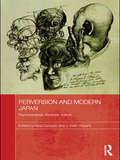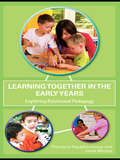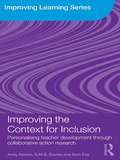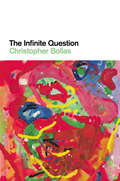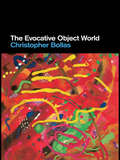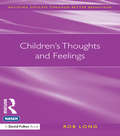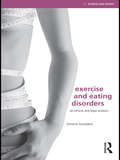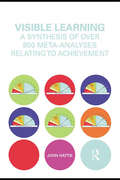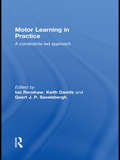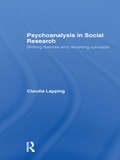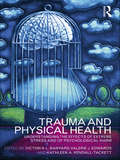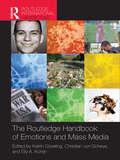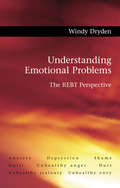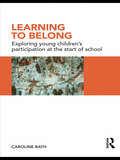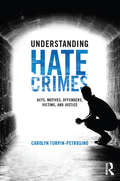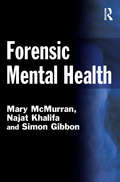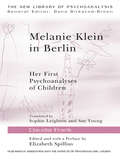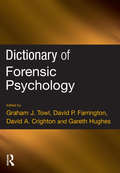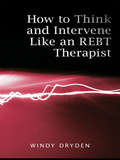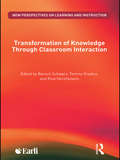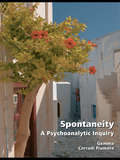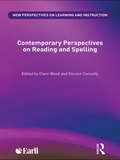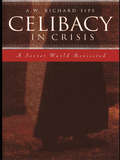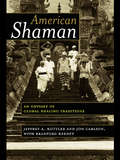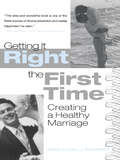- Table View
- List View
Perversion and Modern Japan: Psychoanalysis, Literature, Culture (Routledge Contemporary Japan Series)
by Nina CornyetzHow did nerves and neuroses take the place of ghosts and spirits in Meiji Japan? How does Natsume Soseki’s canonical novel Kokoro pervert the Freudian teleology of sexual development? What do we make of Jacques Lacan’s infamous claim that because of the nature of their language the Japanese people were unanalyzable? And how are we to understand the re-awakening of collective memory occasioned by the sudden appearance of a Japanese Imperial soldier stumbling out of the jungle in Guam in 1972? In addressing these and other questions, the essays collected here theorize the relation of unconscious fantasy and perversion to discourses of nation, identity, and history in Japan. Against a tradition that claims that Freud’s method, as a Western discourse, makes a bad ‘fit’with Japan, this volume argues that psychoanalytic reading offers valuable insights into the ways in which ‘Japan’ itself continues to function as a psychic object. By reading a variety of cultural productions as symptomatic elaborations of unconscious and symbolic processes rather than as indexes to cultural truths, the authors combat the truisms of modernization theory and the seductive pull of culturalism. This volume also offers a much needed psychoanalytic alternative to the area studies convention that reads narratives of all sorts as "windows" offering insights into a fetishized Japanese culture. As such, it will be of huge interest to students and scholars of Japanese literature, history, culture, and psychoanalysis more generally.
Learning Together in the Early Years: Exploring Relational Pedagogy
by Janet Moyles Theodora PapatheodorouRelational pedagogy underpins the core principles of both the cognitive, and social/emotional development of young children, as evidenced in the Reggio Emilia preschools and the Te Whariki curriculum in New Zealand. Emphasising the links between, people, places and ideas and the effects of these on education, educators and learners, it is integral to the English Early Years Foundation Stage, and forms the basis for early years provision around the world. This book brings together contributions from international experts on early years education to explore and debate relational pedagogy across different countries and in the context of a broad international field. The three sections of the book cover the following areas: culture, environment and adult child relationships - how children and adults relate to the culture, ethos and environment in which they function; adult-child relationships - how education and care environments directly relate to learning and teaching; adult-adult relationships for professional development - in training situations and parental partnerships. The book will be of interest to all those who want to delve deeper into how these interactions affect teaching and learning and to understand how the context can have its own impact on pedagogical outcomes. Researchers in early years education and students on early childhood education courses will find much here to inspire and challenge their thinking.
Improving the Context for Inclusion: Personalising Teacher Development through Collaborative Action Research (Improving Learning)
by Sam Fox Andy Howes S.M.B. DaviesThis timely book addresses the need for increasing multi-agency capacity in schools, as the success of initiatives such as ‘Every Child Matters’ or ‘personalised learning’ depends on teachers understanding the challenges faced by young people in learning effectively and happily in their school. The authors of this thought-provoking book present and analyse case studies of collaborative action research, illustrating what is needed in practice for teachers to engage with inclusion for the benefit of their pupils and themselves. The essential elements of success with inclusion are revealed, including: the importance of identifying issues that teachers see as relevant; how teachers can achieve meaningful collaboration in addressing the issues; the necessity of paying careful attention to the consequences of the changes that they make; incorporating practical considerations such as critical support from outsiders; the role of facilitators such as educational psychologists in working with groups of teachers to support their development through action research; how to facilitate change through making use of resources that are already available in the education system. Improving the Context for Inclusion is fascinating reading for all students of education, especially those with an interest in inclusion. Teachers, school leaders and those working in education services will gain an invaluable insight in to how to create an inclusive school environment.
The Infinite Question
by Christopher BollasIn his latest book Christopher Bollas uses detailed studies of real clinical practice to illuminate a theory of psychoanalysis which privileges the human impulse to question. From earliest childhood to the end of our lives, we are driven by this impulse in its varying forms, and The Infinite Question illustrates how Freud's free associative method provides both patient and analyst with answers and, in turn, with an ongoing interplay of further questions. At the book's core are transcripts of real analytical sessions, accompanied by parallel commentaries which highlight key aspects of the free associative method in practice. These transcripts are contextualised by further discussion of the cases themselves, as well as a wider theoretical framework which places its emphasis on Freud's theory of the logic of sequence: by learning to listen to this free associative logic, Bollas argues, we can discover a richer and more complex unconscious voice than if we rely solely on Freud's theory of repressed ideas. Bollas demonstrates, in an eloquent and persuasive manner, how the Freudian position of evenly suspended attentiveness enables the analyst's unconscious to catch the drift of the patient's own unconscious. He also shows that to stimulate further questioning is often of more benefit to the analytical process than to jump to an interpretation. Yet whatever fascinating course a session may take, neither the patient nor the analyst can halt the progress of the self-propelling interrogative drive. The Infinite Question will be invaluable to both the new student and the experienced psychoanalyst, read either on its own or as a practice-based extension of the theoretical ideas elaborated in its companion volume, The Evocative Object World (also published by Routledge).
The Evocative Object World
by Christopher BollasIn The Evocative Object World Christopher Bollas builds on Freud's account of dream formation, combining it with perceptive clinical, theoretical and cultural insights to show how the psychoanalytical method can provide a rich understanding of what has traditionally been regarded as 'the outside world'. Moving from the fundamentals of the free associative technique, through an examination of how architecture and the built environment interact with individual and societal dream life, Bollas extends the work of psychoanalysis beyond relations with literature and culture to the actual objects which surround us. As with the evocative external structures of our environment, Bollas describes how the family, with its inherited genetic structures, likewise constitutes a pre-existent unconscious formation into which we are placed, and demonstrates that there is more to this multifaceted unit than the traditional psychoanalytical notion of the Oedipal triangle. In the process, Bollas also provides a fascinating and comprehensive review of how his own theories have evolved over the past three decades: a period during which, in his view, Western society has increasingly neglected – or even become actively hostile towards – unconscious life. Throughout this engaging and accessible text, Bollas rejects the simplistic notion that mental life is unconsciously determined. Instead he provides a compelling study of how unconscious life is shaped by a diverse array of both internal and external factors, and how the work of the Freudian pair provides the best means to gain insight into our dreams, our surroundings, our families – and our mental life as a whole.
Children's Thoughts and Feelings: Children's Thoughts And Feelings (nasen spotlight)
by Rob LongUnderstanding how children think and feel is the key to buiding good relationships in the classroom. This book looks at: underlying causes of emotional conflicts the nature of maladaptive coping mechanisms why boys tend to "act out" and girls ten to "act in" interventions to promote the use of adaptive coping styles.
Exercise and Eating Disorders: An Ethical and Legal Analysis (Ethics and Sport)
by Simona GiordanoEating disorders (EDs) have become a social epidemic in the developed world. This book addresses the close links between EDs and exercise, helping us to understand why people with EDs often exercise to excessive and potentially harmful levels. This is also the first book to examine this issue from an ethical and legal perspective, identifying the rights and responsibilities of people with EDs, their families and the fitness professionals and clinicians that work with them. The book offers an accessible account of EDs and closely examines the concept of addiction. Drawing on a wide range of medical, psychological, physiological, sociological and philosophical sources, the book examines the benefits and risks of exercise for the ED population, explores the links between EDs and other abuses of the body in the sports environment and addresses the issue of athletes with disordered eating behaviour. Importantly, the book also surveys current legislation and professional codes of conduct that guide the work of fitness professionals and clinicians in this area and presents a clear and thorough set of case histories and action points to help professionals better understand, and care for, their clients with EDs. Exercise and Eating Disorders is important reading for students of applied ethics, medical ethics and the ethics of sport, as well as for fitness professionals, psychiatrists, clinical psychologists, sports coaches and sport and exercise scientists looking to improve their understanding of this important issue.
Visible Learning: A Synthesis of Over 800 Meta-Analyses Relating to Achievement (Corwin Literacy Ser.)
by John HattieThis unique and ground-breaking book is the result of 15 years research and synthesises over 800 meta-analyses on the influences on achievement in school-aged students. It builds a story about the power of teachers, feedback, and a model of learning and understanding. The research involves many millions of students and represents the largest ever evidence based research into what actually works in schools to improve learning. Areas covered include the influence of the student, home, school, curricula, teacher, and teaching strategies. A model of teaching and learning is developed based on the notion of visible teaching and visible learning. A major message is that what works best for students is similar to what works best for teachers – an attention to setting challenging learning intentions, being clear about what success means, and an attention to learning strategies for developing conceptual understanding about what teachers and students know and understand. Although the current evidence based fad has turned into a debate about test scores, this book is about using evidence to build and defend a model of teaching and learning. A major contribution is a fascinating benchmark/dashboard for comparing many innovations in teaching and schools.
Motor Learning in Practice: A Constraints-Led Approach
by Ian RenshawMotor Learning in Practice explores the fundamental processes of motor learning and skill acquisition in sport, and explains how a constraints-led approach can be used to design more effective learning environments for sports practice and performance. Drawing on ecological psychology, the book examines the interaction of personal, environmental and task-specific constraints in the development of motor skills, and then demonstrates how an understanding of those constraints can be applied in a wide range of specific sports and physical activities. The first section of the book contains two chapters that offer an overview of the key theoretical concepts that underpin the constraints-led approach. These chapters also examine the development of fundamental movement skills in children, and survey the most important instructional strategies that can be used to develop motor skills in sport. The second section of the book contains eighteen chapters that apply these principles to specific sports, including basketball, football, boxing, athletics field events and swimming. This is the first book to apply the theory of a constraints-led approach to training and learning techniques in sport. Including contributions from many of the world’s leading scholars in the field of motor learning and development, this book is essential reading for any advanced student, researcher or teacher with an interest in motor skills, sport psychology, sport pedagogy, coaching or physical education.
Psychoanalysis in Social Research: Shifting theories and reframing concepts
by Claudia LappingThe use of psychoanalytic ideas to explore social and political questions is not new. Freud began this work himself and social research has consistently drawn on his ideas. This makes perfect sense. Social and political theory must find ways to conceptualise the relation between human subjects and our social environment; and the distinctive and intense observation of individual psychical structuring afforded within clinical psychoanalysis has given rise to rich theoretical and methodological resources for doing just this. However, psychoanalytic concepts do not remain the same when they are rearticulated in the context of research. This book traces the reiteration and transformation of concepts in the psychoanalytic theory of Freud, Klein and Lacan, the social theory of Butler, Derrida, Foucault, Laclau and Zizek, and case studies of empirical research ranging from the classic Tavistock Institute studies to contemporary work in politics, gender studies, cultural studies and education. Each chapter explores one cluster of concepts: Melancholia, loss and subjectivity Overdetermination and free association Resistance, reflexivity and the compulsion to repeat Repression, disavowal and foreclosure Psychic defenses and social defenses Arguing against the reification of psychoanalytic concepts, Claudia Lapping suggests the need for a reflexive understanding of the play of attachments and substitutions as concepts are reframed in the contrasting activities of psychoanalysis and research.
Trauma and Physical Health: Understanding the Effects of Extreme Stress and of Psychological Harm
by Kathleen A. Kendall-Tackett Victoria Banyard Valerie EdwardsTrauma research and clinical practice have taught us much about the widespread problems of child maltreatment, partner violence, and sexual assault. Numerous investigations have documented links between such trauma exposure and long-term negative mental health consequences. As we learn more about traumatic stress, however, increasing attention has been drawn to the less studied physical health effects of maltreatment and trauma. Trauma and Physical Health describes both the negative physical health effects of victimization in childhood as well as exploring theoretical models that explains these links. By bringing together new and current studies on the relationship between trauma and physical health, this edited collection assesses the clinical implications of these links. At a time when the mental health field is becoming increasingly cognizant of the value of collaboration with professionals in the physical health arena, this book suggests ways in which clinicians can work with primary care professionals to better meet the needs of trauma survivors across the lifespan. A key focus of the text is to clarify the relationship between the current knowledge base in trauma and physical health and directions for future research in primary care health settings. With contributors from a wide range of clinical and psychological disciplines, it will be of interest to researchers, clinicians and professionals in the trauma field and to primary care professionals concerned with compassionate care for the traumatized.
The Routledge Handbook of Emotions and Mass Media
by Katrin DövelingThe impact of mass media on individuals and society is to a great extent based on human emotions. Emotions, in turn, are essential in understanding how media messages are processed as well as media’s impact on individual and social behavior and public social life. Adopting an interdisciplinary approach to the study of emotions within a mass media context, the Handbook of Emotions and Mass Media addresses areas such as evolutionary psychology, media entertainment, sociology, cultural studies, media psychology, political communication, persuasion, and new technology. Leading experts from across the globe explore cutting-edge research on issues including the evolutionary functions of mediated emotions, emotions and media entertainment , measurements of emotions within the context of mass media, media violence, fear-evoking media, politics and public emotions, features , forms and functions of emotions beyond the message, and provide the reader a glimpse into future generations of media technology. This compelling and authoritative Handbook is an essential reference tool for scholars and students of media, communication studies, media psychology, emotions, cultural studies, sociology, and other related disciplines.
Understanding Emotional Problems: The REBT Perspective
by Windy DrydenRational emotive behaviour therapy (REBT) is an approach to counselling and psychotherapy rooted in the CBT tradition and one that has a distinctive perspective on emotional problems. Understanding Emotional Problems provides an accurate understanding of the REBT perspective on eight major emotional problems for which help is sought: anxiety depression shame guilt unhealthy anger hurt unhealthy jealousy unhealthy envy. Rather than discussing treatment methods, Windy Dryden encourages the reader to accurately understand these problems and suggests that a clear, correct understanding of each disorder will provide a firm foundation for effective treatment. This concise, straightforward text presents each emotional problem in a similar way, allowing the reader to compare and contrast the similarities and differences between problems. Understanding Emotional Problems will be essential reading for therapists both in training and in practice.
Learning to Belong: Exploring Young Children's Participation at the Start of School
by Caroline BathBuilding on highly topical research surrounding young children’s participation, this book draws on a diversity of disciplines exploring the importance of participatory approaches to children’s early education and shows how fostering a sense of identity and belonging are essential to early learning. Taking young children seriously demands a high level of confidence and leadership in early years practitioners, and the author provides a convincing, well researched rationale for using this approach in early years contexts. The chapters • demonstrate the importance of listening to the voices of the children,• show how to help young children make sense of the rules and hierarchies they encounter in the classroom• explore ways of working that include the young children but also allow adults to shape approaches to collective decision making • use examples of the type of questions which children might ask when they first enter school, which are presented as ‘windows’ into children’s experiences via key moments or incidents in the school day• provide a framework and practical tools for planning This book is an important addition to debate about the politics and ethics of a highly prescribed and mainly developmentally-informed early years curriculum. Researchers and students of early childhood education will find much here of interest to them.
Understanding Hate Crimes: Acts, Motives, Offenders, Victims, and Justice
by Carolyn Turpin-PetrosinoHate crimes and lesser acts of bigotry and intolerance are seen to be constants in today’s world. Since 1990, the federal government has published annual reports on hate crime incidents in the United States. While the reported numbers are disturbing, even more devastating is the impact of these crimes on individuals, communities, and society. This comprehensive textbook can serve as a stand-alone source for instructors and students who study hate crimes and/or other related acts. It invites the reader to consider relevant social mores and practices as well as criminal justice policies as they relate to hate crimes by presenting this subject within a broad context.
Forensic Mental Health (Criminal Justice Series)
by Mary McMurran Najat Khalifa Simon GibbonThis book provides a concise introduction to the increasingly important field of forensic mental health. It aims to set out both the key concepts in forensic mental health as well as the way the discipline operates in the broader context of criminal justice and mental health care systems. It will provide an ideal introduction to the subject for students taking courses in universities and elsewhere, for mental health practitioners in the early stages of their careers, and for professionals from other agencies needing an informed and up-to-date account of forensic mental health.
Melanie Klein in Berlin: Her First Psychoanalyses of Children (The New Library of Psychoanalysis)
by Claudia FrankIn this book Claudia Frank discusses how Melanie Klein began to develop her psychoanalysis of children. Melanie Klein in Berlin: Her First Psychoanalyses of Children offers a detailed comparative analysis of both published and unpublished material from the Melanie Klein Archives. By using previously unpublished studies, Frank demonstrates how Klein enriched the concept of negative transference and laid the basis for the innovations on both technique and theory that eventually led not only to changes in child analysis, but also to changes in the analysis of adults. Frank also uncovers the influence that this had on Klein's later theories of the paranoid-schizoid and depressive positions, and on her understanding of psychotic anxieties. The first seven chapters in the book provide an explanation of the essence of Klein's approach to child psychoanalysis covering topics including: the inevitability and usefulness of negative transference development of play early conscious and unconscious phantasies. Part two provides a translation of Klein's unpublished notes on the treatments of four of the children she analysed in Berlin: 7-year-old Grete, 2-year-old Rita, 7-year-old Inge and 6-year-old Erna. Melanie Klein in Berlin is the first text to make extensive use of Klein's unpublished papers, clinical notes, diaries and manuscripts. It will appeal to anyone involved in child psychoanalysis and the development of Melanie Klein's thinking.
Dictionary of Forensic Psychology
by David P. Farrington Graham J. Towl David A. Crighton Gareth HughesOver the past decade, forensic psychology has grown rapidly as a subject, with an increasing number of forensic psychologists working in demanding roles in prisons, secure training facilities, and high, medium and low security healthcare facilities as well as other parts of the criminal justice system. This Dictionary is designed to meet the needs of both students and practitioners. It contains approximately 100 entries on key terms and concepts, arranged alphabetically and contributed by leading academic and practicing forensic psychologists.
How to Think and Intervene Like an REBT Therapist
by Windy DrydenTrainee therapists often stick rigidly to the therapeutic guidelines that are taught to them on their training course, or adopted from a book, regardless of their approach. How to Think and Intervene Like an REBT Therapist provides the trainee with an opportunity to discover how experienced therapists think, and how their thoughts influence their interventions when using REBT. In this book, Windy Dryden compares the thinking and intervening characteristics of experienced REBT therapists with the actions of trainees making errors typical of people at an introductory level. By using clinical vignettes, case scenarios and verbatim dialogue he demonstrates how REBT therapists can make better use of the work alliance between themselves, their clients and their trainees, and use REBT more flexibly in practice. This highly practical guide will be essential reading for all those who have recently been introduced to rational emotive behaviour therapy.
Transformation of Knowledge through Classroom Interaction (New Perspectives on Learning and Instruction)
by Tommy Dreyfus Baruch Schwarz Rina HershkowitzClassrooms provide extremely varied settings in which learning may take place, including teacher-led conversations, small group unguided discussions, individual problem solving or computer supported collaborative learning (CSCL). Transformation of Knowledge through Classroom Interaction examines and evaluates different ways which have been used to support students learning in classrooms, using mathematics and science as a model to examine how different types of interactions contribute to students’ participation in classroom activity, and their understanding of concepts and their practical applications. The contributions in this book offer rich descriptions and ways of understanding how learning occurs in both traditional and non-traditional settings. Combining theoretical perspectives with practical applications, the book includes discussions of: the roles of dialogue and argumentation in constructing knowledge the role of guidance in constructing knowledge abstracting processes in mathematics and science classrooms the effect of environment, media and technology on learning processes methodologies for tracing transformation of knowledge in classroom interaction. Bringing together a broad range of contributions from leading international researchers, this book makes an important contribution to the field of classroom learning, and will appeal to all those engaged in academic research in education.
Spontaneity: A Psychoanalytic Inquiry
by Gemma Corradi FiumaraPsychoanalytic theory frequently explains psychopathology from the perspective of either inadequate early care or as the result of environmental factors. In this book the author suggests that poor mental health can be a result of our incapacity to respond to internal and external stimuli, and indicates that spontaneity is essential in the development of many aspects of the self. It is not what happens to us, but how we react to events, that forms who we are. Spontaneity presents an original approach to issues of agency, spontaneity and creativity in psychoanalysis by exploring questions including: active internalisation paradox forgiveness responsibility empathy self de-creation. This book will be essential reading for psychoanalysts, psychotherapists, philosophers and psychologists. It will also prove to be engaging for those interested in psychoanalytic theory and theories of subjectivity.
Contemporary Perspectives on Reading and Spelling (New Perspectives on Learning and Instruction)
by Clare Wood Vincent ConnellyWith contributions from leading international researchers, Contemporary Perspectives on Reading and Spelling offers a critique of current thinking on the research literature into reading, reading comprehension and writing. Each paper in this volume provides an account of empirical research that challenges aspects of accepted models and widely accepted theories about reading and spelling. This book develops the argument for a need to incorporate less widely cited research into popular accounts of written language development and disability, challenging the idea that the development of a universal theory of written language development is attainable. The arguments within the book are explored in three parts: overarching debates in reading and spelling reading and spelling across languages written language difficulties and approaches to teaching. Opening up the existing debates, and incorporating psychological theory and the politics surrounding the teaching and learning of reading and spelling, this edited collection offers some challenging points for reflection about how the discipline of psychology as a whole approaches the study of written language skills. Highlighting ground-breaking new perspectives, this book forms essential reading for all researchers and practitioners with a focus on the development of reading and spelling skills.
Celibacy in Crisis: A Secret World Revisited
by A.W. Richard SipeIn the midst of the worst crisis the Catholic Church has seen in almost 500 years, this book challenges Catholic authorities to renew, rethink, or reform the long-standing institution of celibacy.
American Shaman: An Odyssey of Global Healing Traditions
by Jeffrey A. Kottler Jon Carlson Bradford KeeneyWritten for therapists, scholars, clergy, students, and those with an interest in non-traditional healing practices, this book tells the story of Bradford Keeney, the first non-African to be inducted as a shaman in the Kung Bushman and Zulu cultures.
Getting It Right the First Time: Creating a Healthy Marriage
by Barry McCarthy Emily J. McCarthyA healthy marriage is the result of much more than a stroke of good fortune, the accidental meeting of two "soul mates," or a conscious commitment to stay together no matter what. Studies have found that romantic, passionate love is often just a memory by the wedding, or within the first year of marriage. Creating an intimate, satisfying, and stable marriage is by no means easy or guaranteed--it requires thought, communication, planning, and true commitment to each other (though luck and compatibility never hurt). The window of opportunity in which to build the foundation for such a relationship is narrow, and does not often last too long after the first two years of a marriage.Getting it Right the First Time provides the information every couple needs to know to understand what really makes a marriage work. Husband and wife team, Barry and Emily McCarthy share clear, helpful guidelines for creating a healthy marriage and reveal the strategies, skills, and attitudes that can help prevent disappointment, resentment, and alienation from entering the relationship. Ask any happily married couple whether the time and effort spent in creating a healthy marriage has been worth it, and you should get a universal answer. Getting it Right the First Time can make getting there a little easier.
